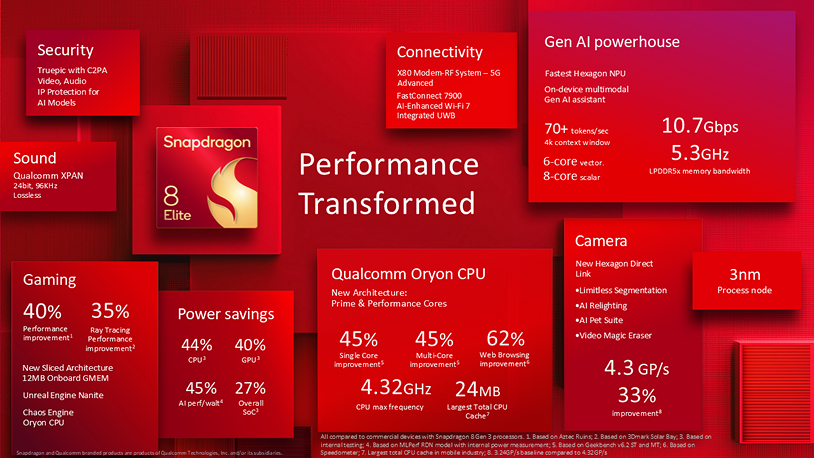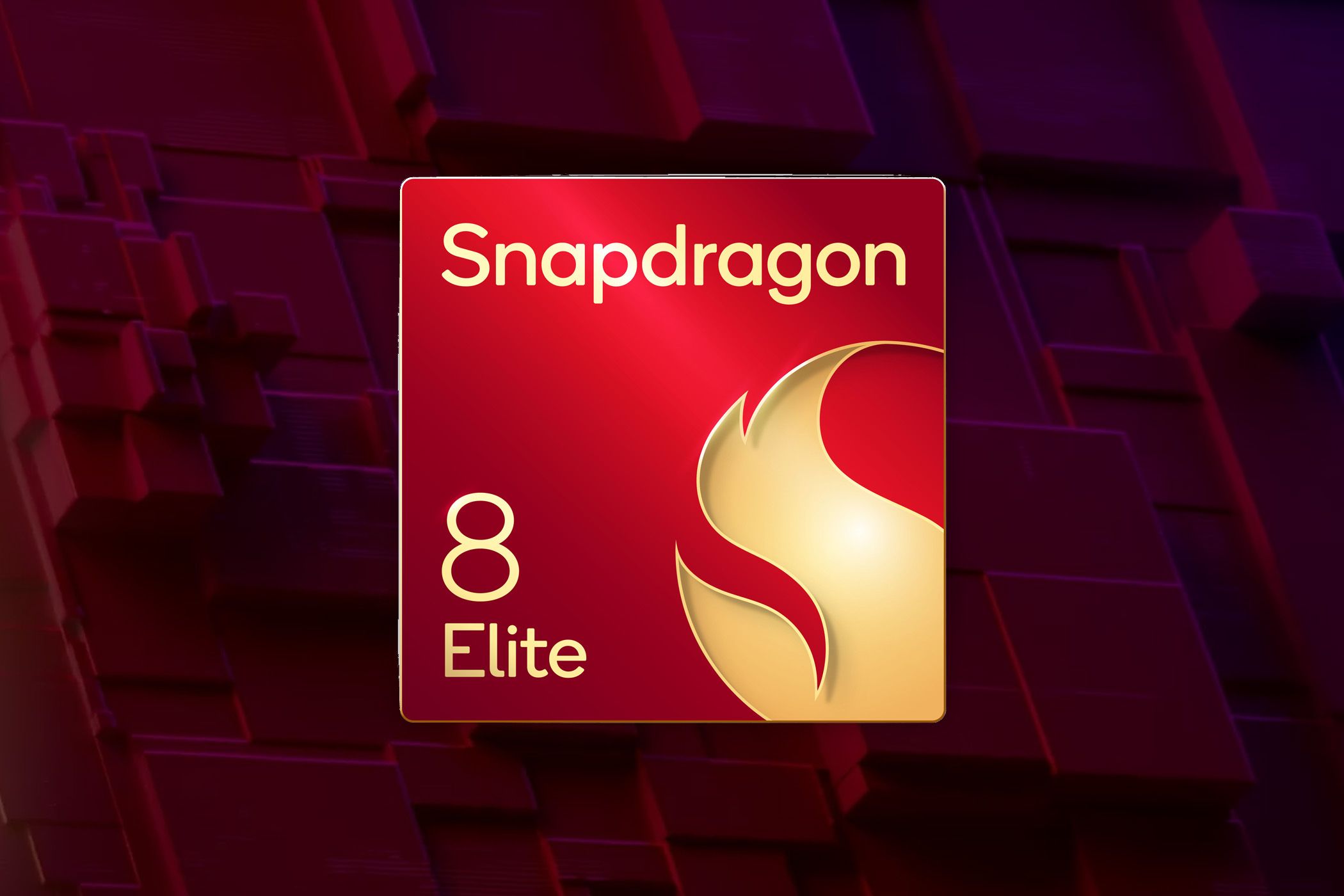We’re all familiar with the typical generational improvements in mobile processors by now—a minor performance bump here, some battery optimization there, and maybe a new feature. But with the new Snapdragon 8 Elite, Android users are finally getting a truly groundbreaking upgrade.
Significant Boost in Speed and Battery Life
Apple has been dominating the mobile and laptop market with its custom Arm-based Apple Silicon SoCs, leading many Android users to switch to iPhone. However, thanks to the new Snapdragon 8 Elite chip, Android phones are finally starting to catch up and surpass Apple Silicon.
The Snapdragon 8 Elite features an all-new architecture and is technically a second-generation “Oryon” CPU. Oryon is a new lineup of CPUs introduced with the Snapdragon X Elite, an Arm-based Windows laptop processor, which was made possible by Qualcomm’s acquisition of the start-up NUVIA a couple of years ago.
So, what do these new Oryon CPUs bring to the table? In short, it is about performance and efficiency, and plenty of it. The Snapdragon 8 Elite is 45% faster in both single- and multi-core performance, with a 40% uplift with the Adreno GPU and a 35% ray tracing improvement compared to its predecessor, the Snapdragon 8 Gen 3.
Thanks to this massive performance boost, the Snapdragon 8 Elite-powered smartphones are finally on par with and even outperform Apple Silicon. For instance, the new 8 Elite-powered OnePlus 13 scored 2,695,676 on AnTuTu with a 600,141 CPU score, while the iPhone 16 Pro scored 1,725,101 with a 459,362 CPU score.
Unlike previous generational improvements, this is a performance boost that you can actually notice, especially if you’re a hardcore mobile gamer. It also means these Snapdragon 8 Elite phones are likely to stay relevant longer, particularly if they continue receiving software updates.
If you’re already happy with the performance of your current phone, perhaps the substantial battery life improvements matter more to you. Qualcomm claims a 40% power efficiency improvement on the Adreno GPU and 45% on the CPU. However, Android Authority’s tests showed an 18% average improvement, with a 39% gain in the web browsing test. Still, that’s a solid improvement, especially considering it’s coming solely from the SoC and not some new battery technology.
New and Improved AI Features
Since AI has been a major buzzword in tech over the past few years, you probably saw this coming. The Snapdragon 8 Elite has a new Hexagon NPU. It supports multimodal AI and is 45% better and more efficient at handling AI-powered tasks. This offers a solid performance boost for current AI tools, but it’ll be even more interesting to see how Android smartphone manufacturers will leverage it by potentially introducing new on-device AI features.
In addition, Qualcomm introduced a few new AI features with the 8 Elite. Many of them focus on photography, such as AI-enhanced pet photography and AI Keeper, a more advanced version of AI eraser tools. Instead of choosing what to erase, you choose the subject of the photo. Oh, and videos are also finally getting an AI Eraser.
The Routine Generational Improvements Are There, Too
In addition to all the crazy new improvements, the Snapdragon Elite 8 is also delivering some less flashy but still useful features. One that stands out in particular is Snapdragon Game Super Resolution 2.0. It’s an upscaling and anti-aliasing algorithm similar to AMD FSR that does an excellent job at upscaling the resolution in games while keeping the image sharp and performance smooth.
A closeup comparison showing traditional bilinear interpolation (left), Snapdragon Game Super Resolution 2 (center), and native resolution (right).
The Elite 8 also supports Wi-Fi 7, Bluetooth 6.0, UWB, and an improved Bluetooth aptX Lossless audio codec that can handle up to 24-bit 48kHz. However, the implementation of these features falls on the smartphone manufacturer; not all devices with the Elite 8 will support them. For instance, the OnePlus 13 only supports the older Bluetooth 5.4 standard.
As an Android user, it’s exciting to finally see some Qualcomm chips that can trade blows with Apple Silicon. Qualcomm’s acquisition of NUVIA is proving to be a game-changer, as this new Oryon processor offers significantly more power and efficiency than its predecessor. Android flagships equipped with the Snapdragon 8 Elite might finally be worth their steep price tags.







